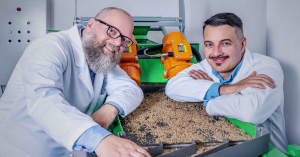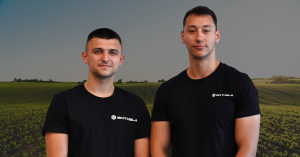Tarfin, the Turkish agritech platform for flexible farmers financing through a Point of Sale (POS) network, recently raised a $8M Pre-Series B round to reinforce its local market position, work on product development, and enter the Romanian market.
Investors in the round include Yara Growth Ventures, the venture capital arm of the fertilizer manufacturer Yara, and previous investors Quona Capital, Elevator Ventures, the corporate venture capital entity of Raiffeisen Bank International, and Syngenta Group Ventures, the venture capital fund of the seed and pesticide manufacturer Syngenta Group.
“This investment is important proof that scale-driven value can be built through the use of technology in small-scale agriculture. It will be an important driving force between reaching more farmers in Turkey and in our overseas expansion starting in Romania,” Mehmet Memecan, founder and CEO of Tarfin, commented in a press release.
As of now, Tarfin has built a network of over 800 partner agri-dealer locations in more than 70 cities across Turkey. The company has helped around 32 000 farmers finance the purchase of agricultural inputs with $80M.
The agritech startup plans to use the latest round for the expansion of its software development and data science teams, as well as to finance the launch of its Romanian operations. Additionally, Tarfin will invest in the development of new products and services for farmers and partner agri-dealers.
Founded in 2017, Tarfin has been giving underbanked farmers across Turkey access to POS financing. Now by using its 5-years-long experience in the Turkish agricultural market, the startup is planning to enter the Central and Eastern European market through Romania.
Making farming financing cheaper and more flexible
The founder Mehmet Memecan, shares that the idea for Trafin was born out of his personal experience distributing fertilizers in the US and in Switzerland. Upon returning to Turkey after ten years, he realized that farmers’ main pain point in accessing high-quality agri inputs was the availability of financing. To make this happen, Tarfin has developed an agricultural risk-scoring model that is based on machine learning.
“While farming is a profitable business across a wide range of crops, small-holder farmers are unable to build equity in their businesses due to their small scale. This lack of cash forces farmers to borrow in-season to purchase their fertilizers, seeds, feedstuffs, chemicals, etc. Bank financing is not enough and leaves a swath of the population underserved due to outdated and lengthy underwriting policies. Farmers, therefore, are left with no choice but to resort to expensive vendor financing for their agri-inputs purchases,” Memecan explains.
In addition, the team of Tarfin has created a mobile application that allows farmers to compare the prices of agricultural inputs and receive information about alternatives with the most suitable prices. By doing that, Tarfin provides farmers and agri-dealers with opportunities to find the best financing options to grow their businesses. In this regard, the agritech platform is servicing them as an enabler of credit through competitive interest rates and user-friendly digital experience.
“Through technology, we could bring together institutional capital, agri-dealers, and farmers in a seamless platform,” shares Memecan
The Romanian agricultural market and the opportunity for Tarfin
As Memecan outlines, Tarfin specializes in bridging the financing gap for the underserved farmers who for a variety of reasons have been left out of the low-cost financial system. Therefore, for their expansion criteria, the team of Tarfin considered countries with a sizable population of farmers who need convenient financing solutions. Additionally, they looked into regions with high technology adoption and similar crop makeup to that of their home market in Turkey.
“Half of Romania’s 12 million hectares of land is being farmed by operations smaller than 100ha in size. With most of the country’s agri-banking system and large agri-inputs distributors and financiers chasing the larger commercial farms, we estimate about 2 million farmers being left behind. Plus, with a smartphone penetration of over 67% and an agri production that focuses on row crops and staple vegetables, Romania fits the bill perfectly,” explains Memecan.







